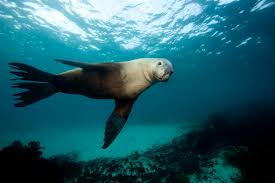By: Hannah Zhang
Much of the oceans around the world remain unmapped or unexplored. There are a variety of challenges scientists must face when exploring the ocean, including freezing temperatures and zero visibility at extended depths. These problems, however, are irrelevant to marine animals such as sea lions, who have been aiding scientists in their recent efforts to do research on marine life.
Nathan Angelakis, a Ph.D. student at the South Australian Research and Development Institute (Aquatic Sciences) and the University of Adelaide, attached small cameras to 8 sea lions after drugging them with a light sedative. All procedures were approved by marine conservation authorities. The sea lion assistants in question included Daphne, Phoebe, Iris, Pasithea and four other wild, unnamed sea lions.
When the sea lions woke up, they made their way to the ocean. The devices were removed when they returned a few days later by researchers in order to review the footage they had captured.
The videos were not only able to provide insight on sea lion behavior, but also captured a striking new perspective of the ocean floor, which is helpful with activities like mapping and geological research.
Although, according to Mr. Angelakis, the best scene of all was captured by the sea lion Daphne. “She was taking her pup out to sea, and that’s the first direct evidence that we’ve collected of Australian sea lion mothers teaching or passing on their foraging skills to their pups,” he said in The New York Times.
In addition to that, Scientists have also created a computer model that can predict sea lion habitats using the data they collected in the captured footage. This will prove extremely useful in monitoring sea lion population health and conservation planning.
With these new tools, Mr. Angelakis and his team hope to protect both the habitats of the endangered sea lions and ensure that places frequented by them are not subjected to further damage.











